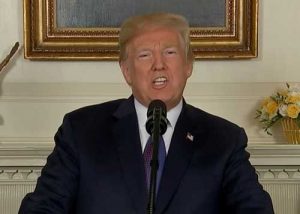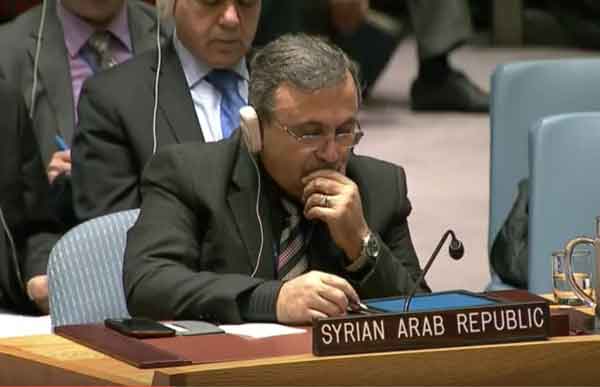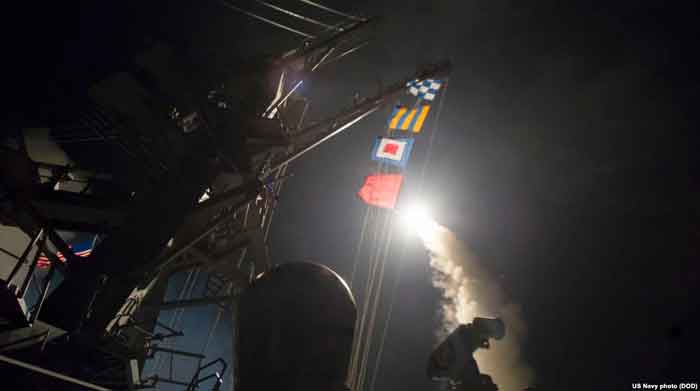
President Trump announced Friday night “a combined operation” by the U.S., France and Britain against the regime of Syrian President Bashar al-Assad, aimed at ending his government’s use of chemical weapons.
Explosions lit up the skies over Damascus, the Syrian capital, as Trump spoke from the White House. Syrian television reported that Syria’s air defenses, which are substantial, responded to the attack, the Associated Press reported.
The attack has ceased, and the early morning skies are dark once more. In Damascus, vehicles with loudspeakers roamed the streets blaring nationalist songs, AP said.
In his White House address, Trump said the U.S. was prepared to “sustain” pressure on Assad until he ended what the president called a criminal pattern of killing his own people with internationally banned chemical weapons.
WATCH: President Trump’s statement
The news agency AFP reported that several huge explosions were heard in Syria’s capital early Saturday, a correspondent there said, as Trump announced that strikes on the country were under way.
The Syrian Observatory for Human Rights, a Britain-based information office, said a Syrian scientific research facility in Damascus had been struck. The observatory also said a number of Syrian army bases in Damascus had been hit in the attack, according to Reuters.
WATCH: U.S. Defense Secretary Mattis Briefs Reporters in Syria Strikes
Trump singled out Syria’s biggest international supporters, Russia and Iran, for failing to stop the Syrian regime’s use of banned chemical weapons. He particularly criticized Russia for not following through on its 2013 promise to eliminate Syria’s chemical weapons.
“Assad’s recent attack — and today’s response — are the direct result of Russia’s failure to keep that promise.” Trump said.
The allied operation came a year after a U.S. missile strike that Trump said was meant to deter Assad from further use of chemical weapons. Since that did not work, a more intense attack would aim to degrade his ability to carry out further such attacks, and would try to do this by hitting Syrian aircraft, military depots and chemical facilities, among other things.
The one-off missile strike in April 2017 targeted the airfield from which the Syrian aircraft had launched their gas attack. But the damage was limited, and a defiant Assad returned to episodic use of chlorine and perhaps other chemicals.
Some information for this report came from Associated Press.
Source: VOA





